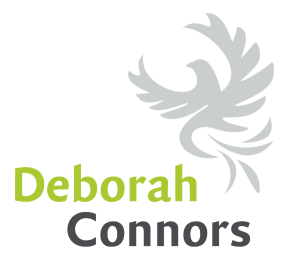
10 Sep Using the Right Question at the Right Time is a Powerful Way to Shift
A profound way to shift yourself and your workplace culture are to identify key transformational questions that:
- Help you and your team think differently;
- Help your team to take on new challenges;
- Help your organization to get engaged in a new vision.
Sometimes the right question asked at the right time can be transformational.
What is a transformational question?
In January 2014, as I was making a note of my goals for the year in my journal and thinking about starting to write my book, A Better Place To Work: Daily Practices That Transform Culture, I found myself writing this question:
What will you do differently to achieve these goals?
The question pushed me to take some courses, create some writing rituals, and make the time for research and writing.
I ended up using a similar question to form the through-line of my book, simply “What will we do differently to create a better place to work?”
Think about this: What simple thing can you personally do differently each day that will positively impact your workplace culture?
What different team practices can you introduce that will shift the culture in your team meetings?
The answer to any transformational question will likely require you to step out of your comfort zone and challenge yourself to learn new ways of leading. A shift in your workplace culture can change it into one where people flourish and succeed.
To do this, you must take the lead in doing things differently.
I always urge clients to keep these questions in mind as they work towards positive change.
Stepping Out of Our Comfort Zones
As Rebecca Jackson asks in this quote:
“Have you ever let go of something that simultaneously protects and strangles you; something that both defines you, but also suffocates your evolution? Just like a snake shedding its skin, you have to lose something critical to grow, leaving you vulnerable and exposed in the process.” (found in Whitney Johnson’s Disrupt Yourself)
How true! There was a conference I was running for so long it began to define me. It kept me so busy it did not allow me the time to write. Instead of speaking and writing books in my chosen field of organizational health, I spent most of my time organizing a conference.
It was a great event, but it was time to move on. To answer the question in my journal, I had to lose something critical to grow. In this transition, as Jackson says, you feel vulnerable and exposed. That’s disruption, a necessary part of growth.
Have you ever had this feeling, where you kept prioritizing things that didn’t feel as meaningful or valuable as your initial purpose for being there? Perhaps this happens within your team at work, where dealing with everyday crises means we never quite get around to focusing on the culture.
What do you need to let go of?
Here’s another simple question I like to ask when I need to make a shift:
What do I need to let go of, continue, or start?
Once, when I was recovering from burnout, I asked myself this question. I made a list of all the things I wanted to let go of—unsustainable patterns that led to exhaustion and unhappiness and were barriers to flourishing.
A few of the patterns I recognized in myself were::
- Holding on to things past their usefulness.
- Living by other people’s agendas.
- Letting other people’s crises become my own.
Creating your own list like this will help you reflect on the aspects of your life that take you in a downward spiral. I then asked what I was doing that I wanted to continue. And finally, “What practices do I want to start that will help me to flourish?” I made a list and started to focus on this regularly.
It’s a much more inspiring list and makes me happy just to look at it! On this list were habits like:
- Creating the time and space for my priorities.
- Meditating daily.
- Practicing gratitude.
What is on your list of habits to stop or let go of? What about the ones that you will continue or even start?
These are also questions we can discuss with your team–what practices do we need to let go of, continue or start that will improve our workplace culture?
Become a Positive Deviant
From an organizational perspective, asking transformational questions helps you to understand what employees want and need.
Here is a short excerpt from the book on using questions to help you become positively deviant:
Transformational questions help you to gain knowledge that can be incorporated into your change effort, but they are also a way of getting people involved. The question you use will help you create a new, shared vision and will be as unique as your organizational culture is.
Just as I suggest for every other practice in this book, take the time to tailor your questions to fit your organization and workplace culture so that they will be truly transformational in nature.
Here are some examples of questions that, if used at the right time and in the right way, can have a powerful effect on transforming your team:
- What do we want our culture to be?
- What is the most powerful action we can take right now?
- How can we work with what is available?
- Where are we? Where do we need to go?
- What do we believe in?
- How does this fit with our purpose and vision?
Who am I when I’m at my best?
The question “Who am I when I am at my best?” can also be transformational.
When working with a group, I will often send this exercise out ahead of time and ask people to try it. When we debrief during the workshop, and I ask them about their experience with it, what I most often hear is “the feedback makes me want to be at my best more often.”
Isn’t this exactly the kind of transformation we want of our team members?
It’s the kind of question that shifts thinking positively and helps people become the best they can be.
Want to know more about practices that can shift your workplace culture?
Follow this blog for bi-weekly inspiration, and consider ordering my book, A Better Place To Work: Daily Practices That Transform Culture.
Are you interested in working together to shift your workplace culture? Send me a message to get started!
Enjoyed this article? Here are three more you might like:

